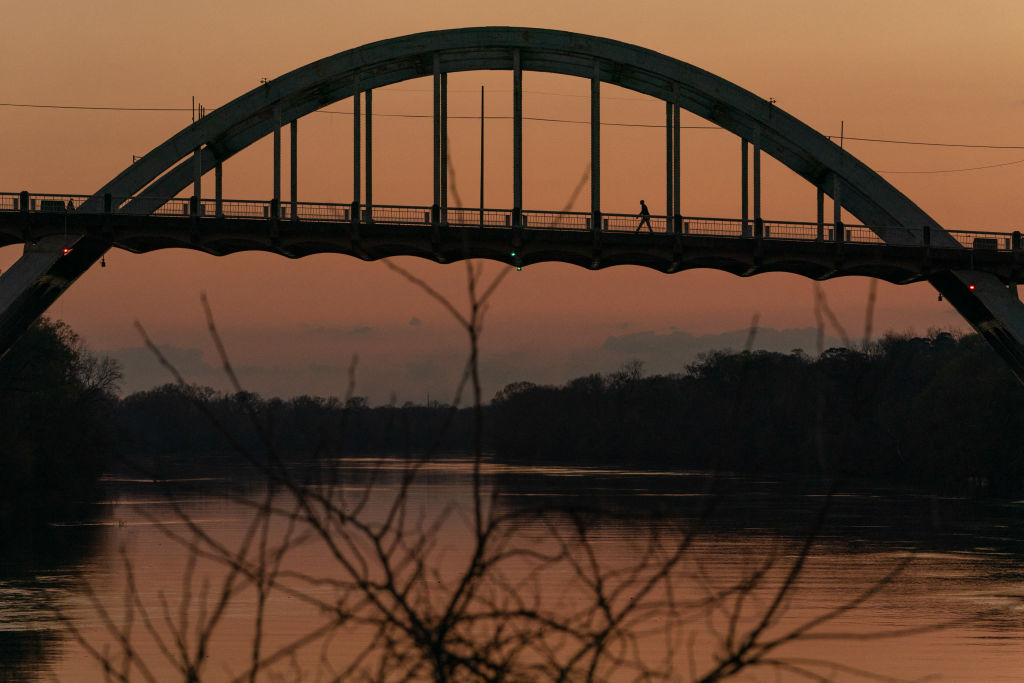Annual ‘Bloody Sunday’ Commemoration Reminder Of The Stakes In Fight For Voting Rights And Democracy
Source: ELIJAH NOUVELAGE / Getty
Fifty-seven years after “Bloody Sunday,” the fight for voting rights continues. Each year people flock to Selma, Ala. to commemorate the brutal attack on March 7, 1965.
“Selma Marchers sacrificed everything when they braved the violence of #BloodySunday,” tweeted the NAACP Legal Defense and Educational Fund. “It’s in their honor that we cross the Edmund Pettus Bridge once again. Our democracy is sacred, and today it’s more important than ever that we stand up for justice.”
Selma Marchers sacrificed everything when they braved the violence of #BloodySunday. It’s in their honor that we cross the Edmund Pettus Bridge once again.
Our democracy is sacred, and today it’s more important than
ever that we stand up for justice. https://t.co/PXjeP5jsk9
— Legal Defense Fund (@NAACP_LDF) March 6, 2022
While many focus solely on the day known as “Bloody Sunday,” there was an entire history of grassroots organizing long before the nation turned its attention toward Selma. An organizing timeline on the NAACP Legal Defense and Educational Fund’s website puts that work in context.
There were a series of marches and organizing efforts before the Selma to Montgomery marches, including a night march in Marion, Ala. Civil rights organizer Jimmy Lee Jackson was shot in the stomach by a state trooper and died a week later.
Jackson’s death is noted as being a catalyst for the Selma to Montgomery marches.
Sunday also marks the anniversary of the infamous Dred Scott Supreme Court decision. The case decided 165 years ago denied American citizenship to descendants of enslaved Africans. And even though Congress would go on to pass the 13th Amendment, Black people in this country have never experienced the full promise of the rights outlined in the Constitution.
Despite the 13th, 14th, and 15th Amendments, along with the various civil rights acts, we still need to fight for basic measures of equity and justice. And the racist notion of “states rights” continues to undermine Black people’s access to the ballot box and threaten the general welfare and domestic tranquility.
The group faced unprovoked violence by state troopers and white supremacist bystanders; footage of the one-sided violence shocked the nation and galvanized the fight against racial injustice. 3/4 #Selma #Selma57 #BloodySunday
— When We All Vote (@WhenWeAllVote) March 6, 2022
Last month, the Supreme Court upheld an Alabama map that advocates say was created to dilute Black voting power.
Members of President Biden’s cabinet will join Vice President Kamala Harris at the annual event. In his statement, Biden called voting the “most fundamental” right. It remains to be seen how Biden and party leaders will mobilize in the coming midterm elections to expand the Senate majority and political will to take action on voting rights and other vital issues.
On Sunday, March 7, 1965, time stopped and blood spilled as brave and righteous Americans sought to cross a bridge named after a Klansman in Selma, Alabama to reach the other side of justice.
Read my full statement on the anniversary of Bloody Sunday: https://t.co/ZEy7JLrTnY
— President Biden (@POTUS) March 6, 2022
While the president remains committed to passing legislation to “protect the right to vote and uphold the integrity of our elections,” the political will in the Senate to remove barriers such as the filibuster remains lacking. Elected officials like Sen. Joe Manchin can wax poetically about taking action and protecting democracy abroad, but their lack of commitment to systemically disenfranchised voters is telling.
If you can support democracy in Ukraine, you could support democracy in America by carving out the filibuster to pass #VotingRightsNOW. It starts at home, Joe.
— Joey White (@joewhitedigital) March 5, 2022
But the president says he will continue promoting voter participation through an executive order announced last fall, and where possible, the Department of Justice pursues enforcement actions.
The fight for equity and justice is not simply a cute photo op and moment of nostalgia. The bloodshed and lives lost coupled with the decades of attacks require action.
Advocates remain inspired by the legacy of civil rights organizers, including those lost in the past few years. As previously reported by NewsOne, groups like Black Voters Matter planned events around the Bloody Sunday commemoration but are calling for renewed attention to passing voting rights legislation.
“We should not still be fighting this fight – but we will if we have to because we who believe in freedom shall not rest until it comes,” Cliff Albright, BVM Co-founder and Executive Director, said in a statement.
SEE ALSO

